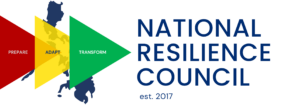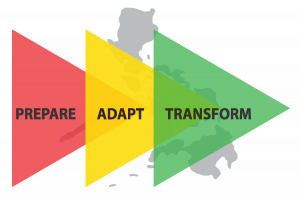Source: The Philippine Star – Filipino Worldview | Author: Ambassador Roberto R. Romulo | Date: May 8, 2020
Former health secretary Dr. Esperanza Cabral compels us to think beyond today’s crisis. Scientists predict a second wave. The development of a cure and a vaccine for the coronavirus disease 2019 or COVID-19 is going to take time. Even then, new pandemics and disease transmission are going to be a fact of life in a globalized world. Dr. Cabral’s words are simple and challenges us to do the right thing.
“Since the crisis that has caused our economy to stop on its tracks is a health issue, maybe there are things to say on how developing a resilient health care system, able to deal with shocks like this, is the ultimate solution to similar health, turned socioeconomic disasters, that are really just around the corner, threatening our way of life the same way that coronavirus has done.
This makes the case for why increasing our health care system’s capacity should be part of the national stimulus strategy. If we do not, we will simply repeat the experience we are going through now, maybe next year, maybe two years from now, who knows? For sure, however, it will be sooner rather than later.
Let’s get ready by spending on improving our health care system. Spend on improving hard infrastructure, BUILD, build, build! The kind of hospital where you would want to be admitted if you ever have a serious illness. Spend on training, recruiting and retaining more human health resource, Employ, employ, employ! The kind of doctor you would want taking care of you and the kind of nurse who will provide expert assistance to your physician. Spend on research and development of medical equipment, drugs, vaccines, supplies and materials such as personal protective equipment. Spend on production and stockpiling of these so that we are not forever dependent on imports. In a global crisis, we are going to get what we need only after the needs of the producing countries and the richer buying countries are satisfied.
Let’s spend on our health. Invest in family planning, or we will have an extra four million people to take care of when the next contagion comes along. Invest in waste management or we will drown in a tsunami of used personal protective equipment (they are made of plastic) that will pollute the land forever. Invest in water so that we can at least have some to wash our hands with. Invest in housing so that when we call for social distancing and home isolation, they will have some space to do this properly. Invest in data technology so that we can know where we are and can plan our next steps confidently. Otherwise, we will repeat this cycle of spending trillions that we don’t have, to protect business and our workers and revive our economy. As we always say, an ounce of prevention is better than a pound of cure.”
“It’s the public health care system, stupid” is what former secretary Cabral is saying – a twist of James Carville’s campaign slogan for Bill Clinton. The key takeaway from what Dr. Cabral says is that a resilient health care system will prevent a health issue – and the next one is just around the corner – from becoming a socioeconomic disaster. A resilient health care system will spare our country the terrible dilemma of choosing between loss of life or loss of livelihood.
Digital response to COVID-19
To me, a key component of health and economic resilience is the application of digital technology to more effectively address the health challenges and its economic consequences.
With lockdowns and other social distancing measures in effect, more and more people are relying on the internet for information and advice and hence, deploying effective digital technologies can help contain the outbreak, meet the needs of people for accurate information and soften the impact of the crisis on their lives.
Data analytics and artificial intelligence (AI) can be used to give an accurate picture of infections, and allow government and business to react and plan accordingly. Digital applications can help trace and test people who have come into contact with an infected person. I understand IATF has issued a “rapid pass” with digital tracing potential. Digital communication channels can provide reliable information on global and national COVID-19 developments, information about the outbreak, travel restrictions, practical guidance on protection, and governmental response. A comprehensive supply chain data application can facilitate the movement of goods such as food and essential services in an optimal way and avoid long lines at checkpoints. Digital ID and digital signature can help ensure the effective delivery of unemployment assistance, food relief and other social benefits.
But before we can unlock the promise of digital technology, however, we have to feed it with baseline data. One of the most basic data is a unique lifetime ID number for each and every Filipino. I understand that the Philippines and six other countries are the only ones who do not have a national identity system in place. In other places like Singapore and Taiwan, a unique ID number is used for the various cards and permits for health services, social security, passports, tax ID, drivers’ license and many others. That way, data can be consolidated and be easily accessible, while balancing health and public service imperatives and privacy concerns.
As an aged veteran of technology, I can foresee the many uses of a National ID System. But I may have to wait a while. About a year and a half ago, I heard a presentation by NEDA on the planned National ID System to be implemented by multiple agencies such as the Philippine Statistics Authority, NEDA and DSWD.
Frankly, as the saying goes, too many cooks spoil the broth. Worse yet, as of today, the respective agencies are still in the bidding process. I would suggest that President Duterte light a fire under the relevant bureaucracies to give this the highest priority and get this completed at the soonest possible time. According to the timetable, trials are underway and targets to cover the entire population by 2025. Indonesia, with almost three times the population of the Philippines is set to complete their identity card issuance soon.
We fought so hard for a DICT since the time of FVR, Erap, GMA, and PNoy. DICT presence NOW is an imperative.
![]()


